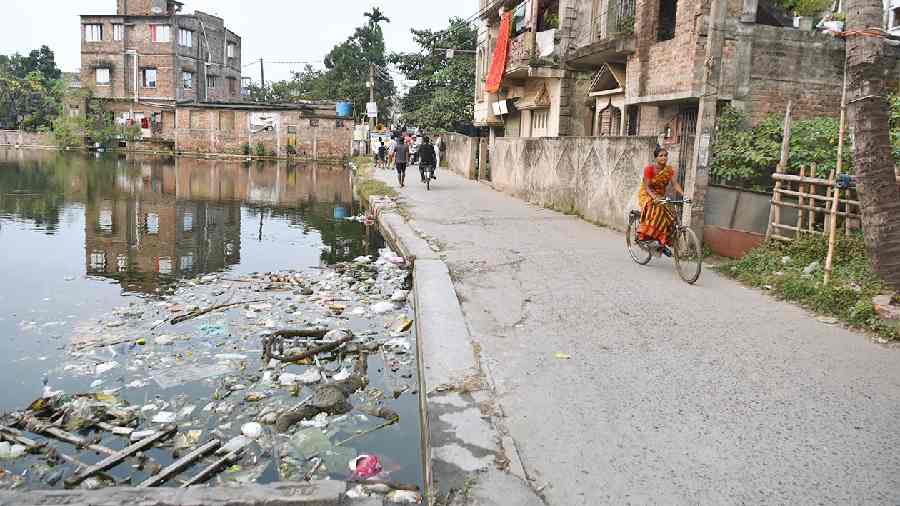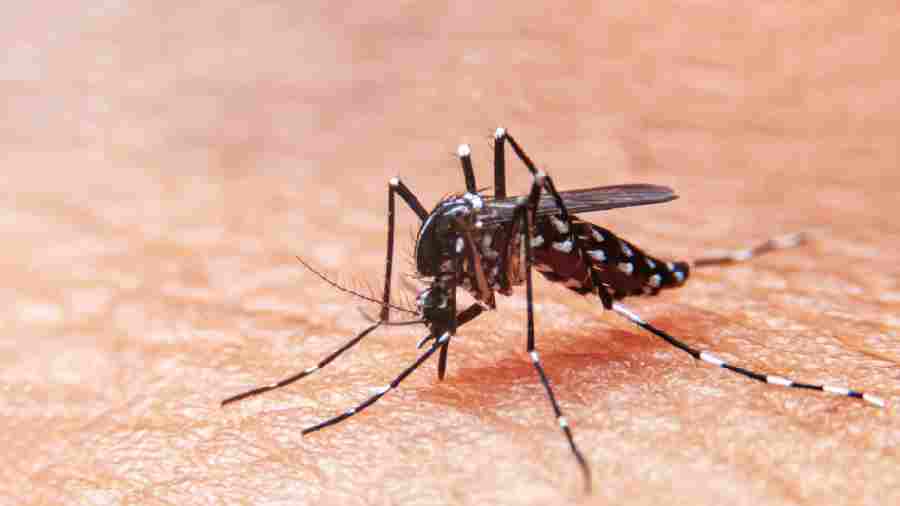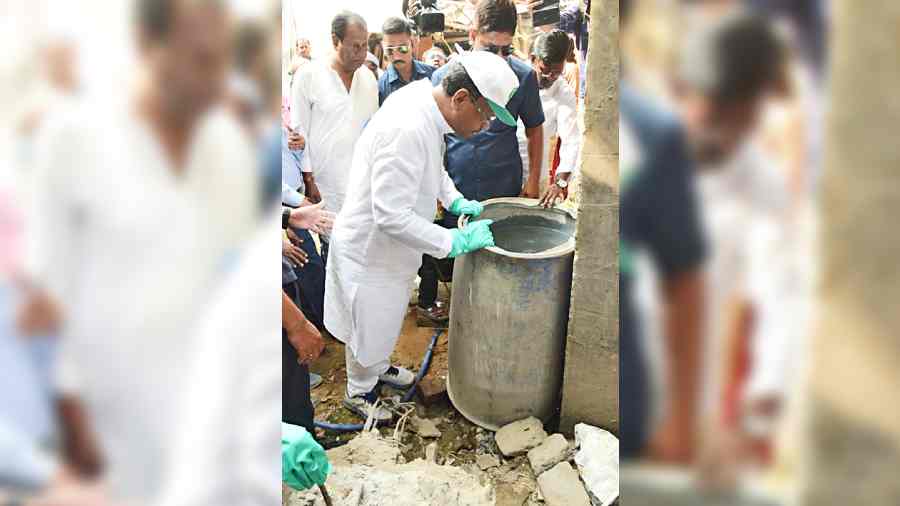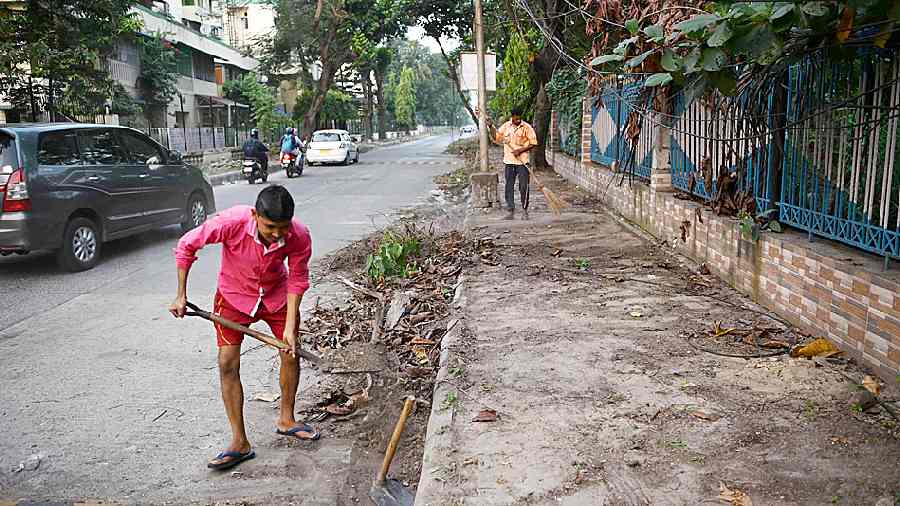Disregard for data, letting the large volunteer force created for Covid disappear following a sharp drop in cases, failure to spread awareness, love for denial.
The wild spread of dengue across West Bengal has bared lapses in the government’s combat strategy and the failure of health officials to learn lessons from the Covid pandemic in controlling an infectious disease, a public health expert said on Thursday.
West Bengal recorded 723 fresh dengue cases on Thursday, according to the state health department.
“The state government seems to be taking aggressive vector-control measures over the past few days. But if we had learnt lessons from Covid, the reaction to the alarming rise in dengue cases would have been different from the start,” said the expert, who was involved in the country’s battle against Covid.
“It seems we have closed our eyes after the storm has passed. We are neither looking back to understand the experience we have gained nor taking a hard look at the mistakes we have committed,” the expert said.
“It is normal to make mistakes but they need to be analysed. Otherwise, even a disease like dengue, which can’t be compared with Covid in terms of number of cases, can create a public health disaster.”
While speaking to The Telegraph, the expert pointed out where we are going wrong.
Disrespect for data
The state government has not yet made public the total number of dengue cases this year. Nor has it come out with the number of deaths caused by the mosquito-borne disease.
The Telegraph has reported that most states are updating dengue data available with the National Vector Borne Diseases Control Center, the nodal agency for dengue under the health ministry. West Bengal is among the handful of exceptions.
“Initially, during Covid, several governments in India were showing reluctance to publish data. Later, it was proved that if one is not transparent with data, it can be dangerous,” the expert said. “One cannot analyse which area has more cases and needs extra attention,” he said.
According to the experts, dengue cannot be eradicated but can definitely be contained with the help of public health measures, such as destruction of breeding grounds of the Aedes aegypti mosquito, the transmitter of the dengue virus.
An entomologist said data helped find out where there was more prevalence of cases. Anti-mosquito measures, such as fogging, can be directed at those places.
An official in the state health department said the government was sharing data internally, with the district authorities and urban local bodies, to identify the places that are turning into dengue hotspots.
“If the data is not available in public domain, there will always be a possibility of important numbers being ignored or manipulated for the benefit of the authorities,” he said.
“The authorities should come out with proper data so that people themselves can take precautions. Now, there is confusion and panic.”
This newspaper has earlier reported that the authorities in Singapore have created an app which shows the areas with a high prevalence of dengue cases. That prompts people in those areas to be more cautious.
Missing volunteers
During the height of the Covid pandemic, the state government had hired volunteers to help health-care personnel at hospitals manage patients. Also, local bodies, NGOs and neighbourhood clubs were involved in raising awareness about getting tested for Covid if a person was running a temperature and the need to mask up.
“The volunteers were trained in handling Covid patients. But as the number of cases started declining, these volunteers went back home. They should have been retrained and deployed to spread awareness about the necessity to keep localities clean and prevent accumulation of water to keep dengue at bay,” the public health expert said.
He felt that once such a volunteer force was identified, and its efficacy established, there should have been a continuous training process for them. According to the expert, the disbanding of the volunteer force illustrates why research data hardly informs policy in India.
Politics above policy
“Political priority and administrative accountability play more important roles than public policies,” said the expert. Instead of indulging in blame game, political parties should come together to fight dengue.




